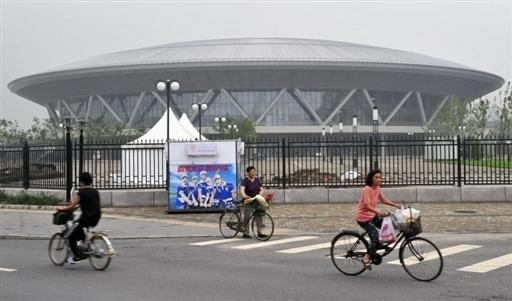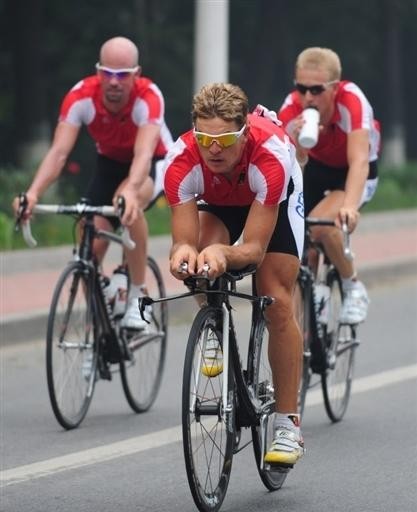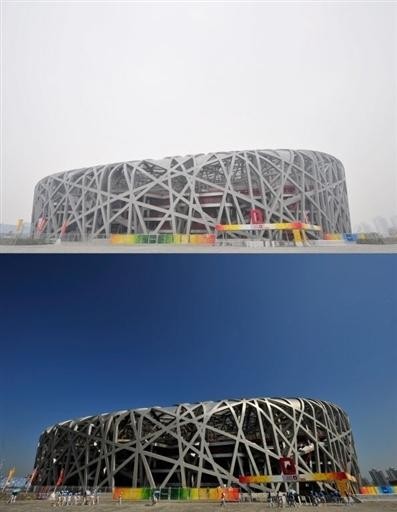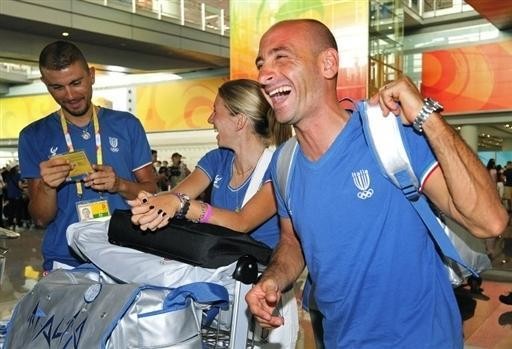Beijing Olympics – will poor air quality mean poor performance?
Ever since the International Olympic Committee granted Beijing the 2008 Olympic Games, speculation...







Olympices News feature, August 5, 2008
Beijing Olympics – will poor air quality mean poor performance?
Ever since the International Olympic Committee granted Beijing the 2008 Olympic Games, speculation has been rife as to whether the city's smog levels would drop below a suitable standard in time for the Games. Now, just a week before the games and the first endurance test of the Games, the road race, the pollution levels have been fluctuating in and out of the levels of PM10 (set at 50 micrograms/cubic metre) that the World Health Organization deem to be acceptable.
But what effect will the smog have on the athletes? One medical expert told Sky News Online that unless smog in the Olympic capital clears, athletes may find their times considerably reduced, and that we should not "expect any world records to be broken."
"Athletes breathe in ten times as much air into their lungs as spectators," Professor Frank Kelly, professor of environmental health at Kings College, London, told Sky News.
"The pollution will cause their lungs to decrease in diameter, so they will not be able to take as much air into their lungs, which will affect their performance. Some of the athletes will suffer severe reactions and all will see impacts on their health.
"They are pushing their bodies to their limits so pollution will have serious consequences," he added. It has been reported, because of this fact alone, many athletes have applied to be allowed to use asthma medication during the Games.
Get The Leadout Newsletter
The latest race content, interviews, features, reviews and expert buying guides, direct to your inbox!
Smog combat
China spent almost 18 million pounds in an attempt to clean up its capital and lower the pollution levels to that below The World Health Organisation standard. Since July 20, Beijing has halved the total number of cars on the road and has been closing factories and building sites around the city, some of which are dozens of kilometres away from the city.
To combat the smog, many countries have opted to skip the opening ceremony and fly in as late as possible.
"There is no way to acclimatise to dirty air," Heiko Salzwedel, Denmark's head coach told Cyclingnews. "The best thing to do is avoid it all together for as long as possible."
Many teams are also issuing their athletes with protective masks, which are to be worn right up until their events, in an attempt to limit the exposure to the harmful chemicals in the air.
Quality measurements
More of a problem is the Air Pollution Index used to decide if Beijing is enjoying a blue sky day and give ordinary citizens a quick summary of air quality. It is riddled with problems that magnify the effect of relatively lax standards.
"I prefer not to deal with it because it is not internationally recognised," the United Nations Paulo Revellino told Reuters.
Of particular interest for the road race this Saturday. The race covers a vast area around the capital and so the index is an average of the levels across the city, meaning that there may be areas with levels that place the riders in the danger zone.
The index also does not calculate the cumulative effect of different pollutants – so as long as each one is just inside national guidelines the air is considered safe. Further, some pollutants are also not measured. Even going off what you can see is not a good guide to the level of pollutants in the air. Colourless ozone, a particular summer problem because sunlight helps produce it, is not included in the index.
"The sky can appear blue, but air can be still polluted. Ozone can cause some respiratory problems and affect lung functions, so it can produce adverse effects to children, elderly and most likely athletes competing outdoors," a diplomat with an environmental brief told Reuters.
The air quality will have its greatest effect on events that take place outdoors. But that is not to say that the indoor events, such as the track racing, will be spared. It just means that the level of PM10 will be more consistent, and hopefully accurate.
Organisers have said that they may have to re-schedule or move events if the levels of pollution are too high at the time that they are scheduled to be run.
Those participating in the road race may have to change strategy to account for the high level of pollution. Much like racing at altitude, the smog levels may force the riders into oxygen debt as they force the pace or attack. The one thing that they may be able to comfort themselves with is the fact that the conditions are the same for everyone, but really, that is little consolation.